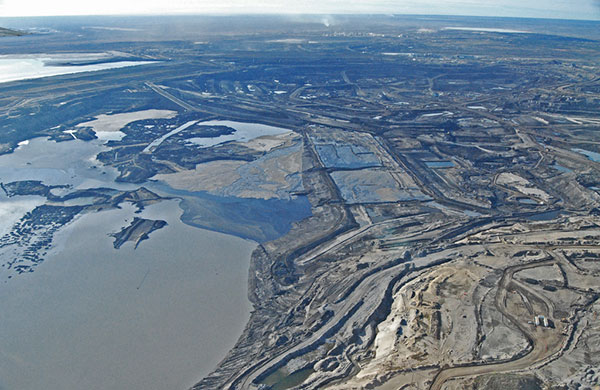
Alberta's tar sands lobbyists must be earning a fortune these days.
So much dirty oil, and so few pathways to market. Their opponents have successfully blocked several of those pathways for the time being, forcing the beleaguered Canadian province to fight a battle on multiple fronts. And those who think it's only a matter of time until Canada bullies its way to victory might be in for a surprise.
In the U.S., the Keystone XL pipeline which would carry tar sands oil from Alberta to refineries on the Gulf of Mexico has become an iconic battle for the climate movement. The tar sands have been portrayed as a ticking carbon time bomb -- "game over" for the climate if it explodes.
And the Obama administration, keen to avoid it going off before the election, delayed a final decision until 2013. In the meantime, as everyone knows, President Obama is whistling a new tune when it comes to climate change. Secretary Kerry, one of the most passionate climate hawks in Washington, is under heavy pressure to kill Keystone as a first step in making good on the president's climate commitment.

Creative Commons: National Wildlife Federation, 2010
Alberta is also battling it out on the home front, with massive opposition to the construction of the Northern Gateway pipelines from Alberta to Canada's West Coast. From there, the oil would be put aboard tankers and shipped to Asia. As Sierra Club Executive Director Mike Brune predicted recently, this will continue to be a difficult and protracted process: "Because of opposition from communities in British Columbia, the premier in British Columbia has now put up significant roadblocks and has called a timeout for several years on that pipeline. So those pipelines will not get built anytime soon."
Increasingly desperate, Canada's finance minister Jim Flaherty has said it is time to look eastward: "There are other alternatives, as you know pipelines to the east to New Brunswick to St. John, pipeline to Churchill, pipeline through the Rockies. We have a pipeline to Alaska."
The West-to-East pipeline has been officially endorsed by the federal government, and last week by the Premiers of Alberta and New Brunswick. But Brune again:
There are also two pipelines that are being proposed to go to the East. Neither of them are going forward yet, again, because of intense opposition in Quebec and in northern New England. So what we have here is an oil industry that is landlocked, that is desperate to find markets for its oil and is increasingly finding it difficult to do so.
Another piece of this puzzle is the European Union, where much of the Keystone XL tar sand oil will end up after being refined in Texas. Just last month, two Alberta ministers descended on 11 European capitals between them in an effort to "maintain and enhance market access." In a detailed briefing on Canada's lobbying activities, Friends of the Earth Europe explains this as "... essentially political code for making sure the EU's flagship climate legislation, the Fuel Quality Directive (FQD), does not in any way discriminate against Canada's dirty tar sands." (PDF)
As I wrote about a similar lobbying junket in the Guardian last year, the directive uses scientific criteria to classify fuels, and tar sands has been found to be an unconventional fuel with disproportionately high greenhouse gas emissions. This would put it at a disadvantage in the European energy market and by extension other markets around the world given Europe's role as a front runner on climate emissions legislation.
Hence Canada's multimillion-dollar effort to kill it. Some of their efforts have already paid off. The European Commission was forced to conduct an "impact assessment" on the Directive (not an environmental impact assessment, mind you but the impact on the industry, jobs, and the process of emissions reporting) which is due out at the end of March. But they still face an uphill political battle to overturn the finding.
This Sunday, February 17, the largest climate rally in American history will call for a rejection of Keystone, and today, more than 40 individuals are facing arrest at the White House. Activists should take heart in the fact that one of the primary arguments by Keystone proponents -- that if America won't take the oil, others will -- may not hold water.
